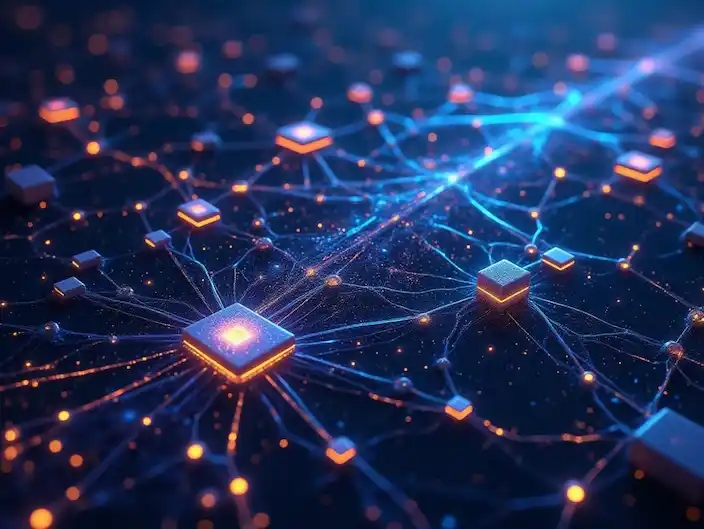Table of Contents
- Introduction: The Transformation of Digital Ownership
- Digital Real Estate and Blockchain: Definitions and Core Concepts
- Legal Challenges of Ownership in the Metaverse
- Jurisdictional Boundaries and Competence Issues
- Protection of Intellectual Property Rights
- Conflict Between Local and International Laws
- Cybersecurity and Technological Risks
- Redefining the Concept of Ownership
- Preserving User Privacy
- The Role of Blockchain in Ensuring Digital Ownership
- Data Security and Transparency
- Tokenization and Authenticating Digital Real Estate
- The Use of Smart Contracts in Transactions
- Eliminating Intermediaries and Streamlining Processes
- Partial Ownership and Shared Investment Opportunities
- Legal Barriers and Technological Adoption Challenges
- Conclusion: The Path Ahead for Securing Digital Ownership
Introduction
Rapid technological advancements in recent years have created new platforms for economic and social activities. One of these platforms is the Metaverse, which, by combining virtual reality, blockchain, and the internet, offers a virtual yet highly potential world. Within this emerging environment, a concept known as digital real estate has arisen, including lands, buildings, and other virtual assets. These properties, sold through digital platforms, have not only created a new economic opportunity but have also raised critical questions regarding ownership rights, laws, and security.
Unlike physical asset ownership, digital property ownership is heavily reliant on modern technologies such as blockchain and NFTs (Non-Fungible Tokens). These technologies enable transparent and secure ownership registration and transfer. But can these tools alone solve the complex legal and social challenges related to digital ownership? This question serves as the starting point for the discussions explored in this paper.
Moreover, the Metaverse, as a dynamic and borderless digital environment, faces ambiguities regarding jurisdiction, privacy, and the precise definition of ownership. While blockchain, as a powerful technological tool, offers many advantages in managing these issues, there remains a need for clearly defined and internationally applicable legal frameworks. Additionally, the economic and social consequences of these technologies also require detailed analysis and consideration to fully capitalize on the emerging opportunities.
This paper seeks to examine the legal, economic, and social dimensions of digital ownership and analyze the role of blockchain in managing and guaranteeing these properties. It will begin with fundamental definitions of digital real estate and blockchain technology and proceed to analyze the challenges and solutions related to this field.

Definition of Digital Real Estate and Blockchain
Digital real estate in the virtual world includes assets that do not physically exist in the real world but are only visible and accessible in digital spaces. These assets range from virtual lands and buildings on platforms like Decentraland and Sandbox to digital artwork (NFTs), in-game items, and even clothing and assets used in augmented and virtual reality environments. Unlike physical properties, which are tied to specific geographic locations, digital real estate is free from these limitations and only requires the internet and associated platforms.
Practically speaking, digital real estate allows users to fully participate in economic, social, and creative activities within the digital space. For example, owners of virtual land can create spaces to host virtual events, advertisements, or even build online stores. These properties are not only investment assets but also tools for creating new and personalized experiences within the virtual world.
Blockchain, the technology behind these transformations, is a distributed and secure system that stores information in an immutable manner. It consists of blocks that contain transaction data and are linked to the previous block through cryptography. This structure not only ensures transparency and security in transaction recording but also provides resistance to fraud and manipulation due to its decentralized nature.
In the context of digital real estate, blockchain plays a key role in proving ownership, preventing fraud, and ensuring secure asset transfers. Through smart contracts, which are executable computer programs on the blockchain, the terms and conditions of transactions can be automatically enforced. These capabilities make transactions not only faster and more efficient but also significantly increase trust among parties involved. For example, purchasing a virtual plot of land on a blockchain-based platform can easily involve the buyer paying with a digital token and the automatic transfer of ownership via a smart contract.

Legal Challenges of Ownership in the Metaverse
One of the biggest challenges in the field of digital real estate is the ambiguity of the laws and regulations related to it. Due to the novelty of the Metaverse, many legal systems have not yet developed clear frameworks to determine and guarantee ownership rights in this domain. This results in the following issues:
- Jurisdictional Competence: The Metaverse, as an international digital environment, makes geographic boundaries irrelevant. Consequently, in the event of legal disputes, determining which country or court has the authority to handle the matter becomes a significant challenge.
- Intellectual Property Rights: Many digital assets, including artworks or specific designs, fall under intellectual property rights. However, in the Metaverse, copying and unauthorized use of these assets can easily occur. This makes protecting intellectual property rights in the virtual space a complex issue.
- Conflict with Local Laws: Laws related to taxation, trade, and ownership vary across countries. These differences can lead to legal conflicts that require international agreements to resolve.
- Cybersecurity: Despite the use of blockchain for ownership registration, risks such as hacking digital wallets, asset theft, and faulty smart contracts still exist. These issues indicate a need for stricter regulations to protect user rights.
- The Concept of Ownership: Unlike physical assets, whose ownership is clearly defined, the concept of ownership in the Metaverse is still evolving. For example, does owning a digital plot of land include the right to access all of its features, or are there limitations?
- Privacy Issues: Transactions in the Metaverse often occur through digital wallets and user accounts, which may store personal information. Misuse of this information can lead to privacy violations.
To address these challenges, governments and international organizations must collaborate to develop clearer and more comprehensive laws and regulations. Additionally, educating users about their rights and responsibilities in the Metaverse can help reduce legal issues.

The Role of Blockchain in Digital Real Estate Ownership
Blockchain, as a transformative technology, plays a vital role in changing the way digital real estate ownership is managed and transferred. With the increasing popularity of digital assets, including NFTs and virtual real estate in the Metaverse, blockchain has become a key infrastructure to ensure transparency, security, and traceability of these assets.
- Security and Transparency
One of blockchain’s main features is its high level of security. Through strong encryption, blockchain ensures the immutability of data, providing digital real estate owners with confidence that their ownership is protected from fraud and hacking. Additionally, blockchain provides transparency, making all transactions and ownership changes visible and traceable.
- Tokenization of Digital Real Estate
Using blockchain, digital real estate can be converted into unique tokens. These tokens, often in the form of NFTs, can precisely guarantee ownership and authenticity of assets. For instance, a virtual plot of land in the Metaverse or a digital artwork can be registered as an NFT on the blockchain. This method not only defines ownership but also facilitates the quick and easy transfer of assets.
- Smart Contracts
Blockchain uses smart contracts to automate ownership transfer processes. These contracts, executed on the blockchain, automatically fulfill the terms of the agreement. For example, when selling a digital property, ownership transfer and payment occur simultaneously without intermediaries. This feature reduces costs and increases efficiency.

- Eliminating Intermediaries
A major benefit of blockchain in digital real estate ownership is the elimination of intermediaries. In traditional systems, the process of buying and selling assets often requires intermediaries such as banks, lawyers, or registry offices. With blockchain, these intermediaries are removed, and ownership transfers directly and peer-to-peer.
- Partial Ownership
Blockchain enables partial ownership of digital assets. This means that a digital asset can be divided into multiple parts, each belonging to a different owner. This feature allows smaller investors to participate in digital real estate and benefit from its advantages.
- Challenges and Limitations
Despite its many advantages, the use of blockchain in digital real estate ownership also faces challenges, including:
- Regulations and Laws: Laws governing the ownership of digital assets are still not fully defined in many countries.
- Blockchain Sustainability: Blockchain technology requires significant energy and resources, potentially creating environmental concerns.
- Public Adoption: Many individuals and organizations still lack adequate familiarity with this technology.
Conclusion
The transformations in the digital world and the emergence of concepts like the Metaverse, digital real estate, and blockchain technology have opened new horizons in ownership, trade, and social interaction. Blockchain, as a key infrastructure, has addressed many traditional challenges in managing digital asset ownership with features like transparency, security, and the removal of intermediaries. However, legal and social issues related to this domain still require the development of comprehensive international frameworks.
Considering the potential of blockchain technology and the capabilities of the Metaverse, it is expected that these two fields will synergistically play a transformative role in the digital space. However, achieving these goals will require close collaboration between governments, international organizations, and users to create cohesive frameworks that ensure rights and security in the virtual world.
Table of Contents
Toggle


One Response